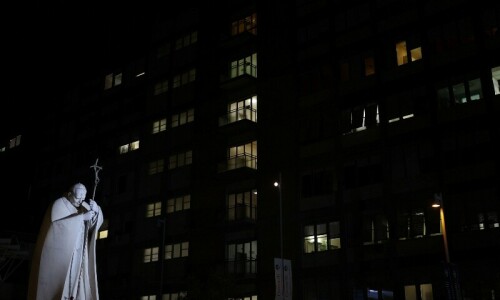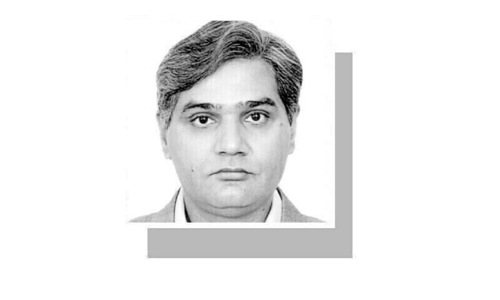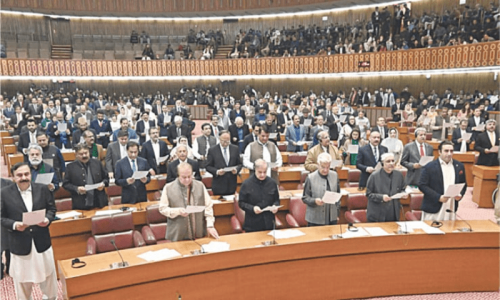ISLAMABAD: The National Electric Power Regulatory Authority (Nepra) on Wednesday concluded that ex-Wapda distribution companies (Discos) and K-Electric would charge between 34 paise and Rs3.70 additional fuel cost, respectively, from their consumers for power consumed in March, under monthly fuel cost adjustment (FCA) mechanism.
The decisions were made on the completion of two separate public hearings. The Discos and KE would together thus pass on a cumulative additional burden of about Rs8.4 billion on consumers across the country under the FCA in the current month’s bills. This would entail additional revenue of about Rs5.47bn to the KE and Rs2.95bn to Discos.
The public hearings were presided over by Nepra Chairman Tauseef H. Farooqui and attended by all four provincial members — Rafique Sheikh, Maqsood Anwar, Muthar Rana and Amina Ahmed.
Nepra’s case officers said that K-Electric had sought an FCA increase of about Rs4.49 per unit for March consumption, involving a financial gain of about Rs6.4bn. After minor adjustments, Nepra worked out the FCA increase at Rs3.70 per unit to provide Rs5.47bn additional finances to KE.
Likewise, Discos had proposed an additional FCA of Rs1.17 per unit to generate about Rs9.5bn in the billing month of May. The regulator, however, calculated a positive FCA of 34 paise per unit with a revenue impact of about Rs2.9bn.
The representatives of the Central Power Purchasing Agency (CPPA) that pleaded the case for an increase in FCA on behalf of Discos said the electricity demand in March was almost 23pc lower when compared to the same month last year mainly because of constrained industrial activities and fair weather conditions.
The power generation was 8pc lower than last year owing to lower LNG supply and minimal power evacuation from Shanghai Electric’s power plant.
Nepra’s members expressed concern that load-shedding remained a constant factor despite lower demand and noted that the power system had been hamstrung by governance challenges as evident from lower LNG supply resulting in load-shedding and when supplies were available the power system could not utilise it. The CPPA representatives conceded that an end to load-shedding would have reduced capacity payments.
Published in Dawn, May 4th, 2023
















































